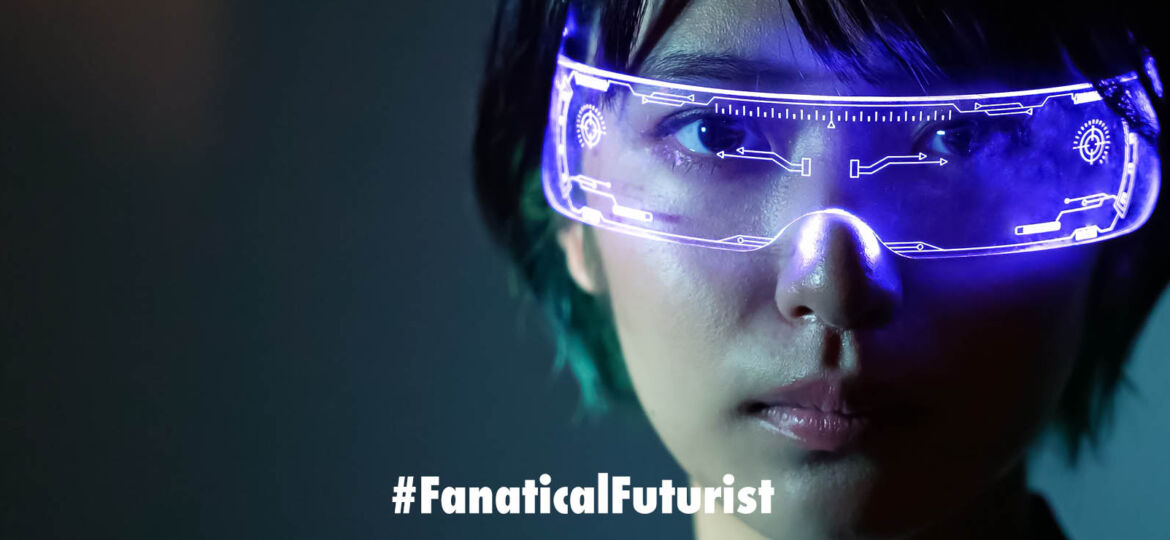
WHY THIS MATTERS IN BRIEF
The Metaverse and Virtual Reality can help people connect in new ways and improve people’s access to various services and locations like never before.
 Love the Exponential Future? Join our XPotential Community, future proof yourself with courses from XPotential University, read about exponential tech and trends, connect, watch a keynote, or browse my blog.
Love the Exponential Future? Join our XPotential Community, future proof yourself with courses from XPotential University, read about exponential tech and trends, connect, watch a keynote, or browse my blog.
The other week Facebook caused a stir when they changed their name to Meta and announced the Metaverse, a virtual world made up of an infinite number of other virtual worlds, was their future. And to date they’ve accrued over $6 Billion in losses in their attempts to lay the foundations and build the ecosystem needed to make it a reality – albeit a virtual reality. Pun intended!
Now capitalising on that metaverse future the South Korean city of Seoul says that it’ll be the first major city government to “enter the metaverse.” On November 23rd the South Korean capital announced a plan to make a variety of public services and cultural events available in the metaverse, an immersive internet that relies on virtual reality. If the plan is successful, Seoul residents can visit a virtual city hall to do everything from touring a historic site to filing a civil complaint by donning virtual reality goggles.
The 3.9 billion won ($3.3 million) investment is part of mayor Oh Se-hoon’s 10-year plan for the city, which aims to improve social mobility among citizens and raising the city’s global competitiveness. It also taps into South Korea’s Digital New Deal, a nationwide plan to embrace digital and AI tools to improve healthcare, central infrastructure, and the economy in its recovery from the economic crisis caused by COVID-19.
Seoul’s metropolitan government will develop its own metaverse platform by the end of 2022. By the time it is fully operational in 2026, it will host a variety of public functions including a virtual mayor’s office, as well as spaces serving the business sector; a fintech incubator; and a public investment organization.
The platform will kick off with a virtual new year’s bell-ringing ceremony this December. In 2023, the city plans to open “Metaverse 120 Center,” a place for virtual public services where avatars will handle citizen concerns that could previously only be addressed by physically going to city hall.
So far the plan offers sparse details about exactly what devices citizens will use to access the metaverse platform though city officials emphasise that the goal is to broaden access to public city services, regardless of geography or disabilities. But specialised equipment could be a barrier for many people. Virtual reality headsets still sell for $300 and $600 and are not as widely accessible as smartphones and computers and even though the price and size of those headsets are dropping, as they become more like glasses, that’s still going to be an impediment for many people and a barrier to entry. And that’s before we discuss the cultural switch that’s needed for people to embrace the virtual world over the real world.
Municipal governments are already using digital technology and real-time data to optimise city operations as part of the “smart cities” movement. The metaverse could be its next evolution. Although the details of how the metaverse will work are still hazy, even to the companies that are trying to build it, it’s a natural next step for Seoul.
The South Korean city is planning to use artificial intelligence to monitor its sewers and water waste centers. An AI chatbot serves as a public concierge, fielding public questions and complaints related to everything from parking violations to covid-19 protocols. Earlier this year, Seoul rolled out plans for a public internet of things network – a series of sensors and base stations throughout the city that collect data on things like traffic, public safety, and environmental metrics and feed them into a central operations platform managed by city workers.
The future of the metaverse is being built almost entirely by companies. HTC, Microsoft, Nike, and Facebook’s parent company Meta are all staking claims to digital real estate but so far South Korea is among the only governments attempting to recreate the virtual public square. But if they can, it could expand the utility of the metaverse to millions of citizens whom might otherwise be excluded, and it’s an interesting project to watch unfurl.

















[…] in the latest twist and following on from South Korea’s desire to turn Seoul into the world’s first metaverse smart city, South Korean motor company Hyundai is aiming to become the first mobility company to build what […]
[…] in the footsteps of South Korea who just ponied up a huge amount of money to create a digital twin of their capital city Seoul in the metaverse government, and architect firm Zara Hadid’s plans, officials in Dubai […]